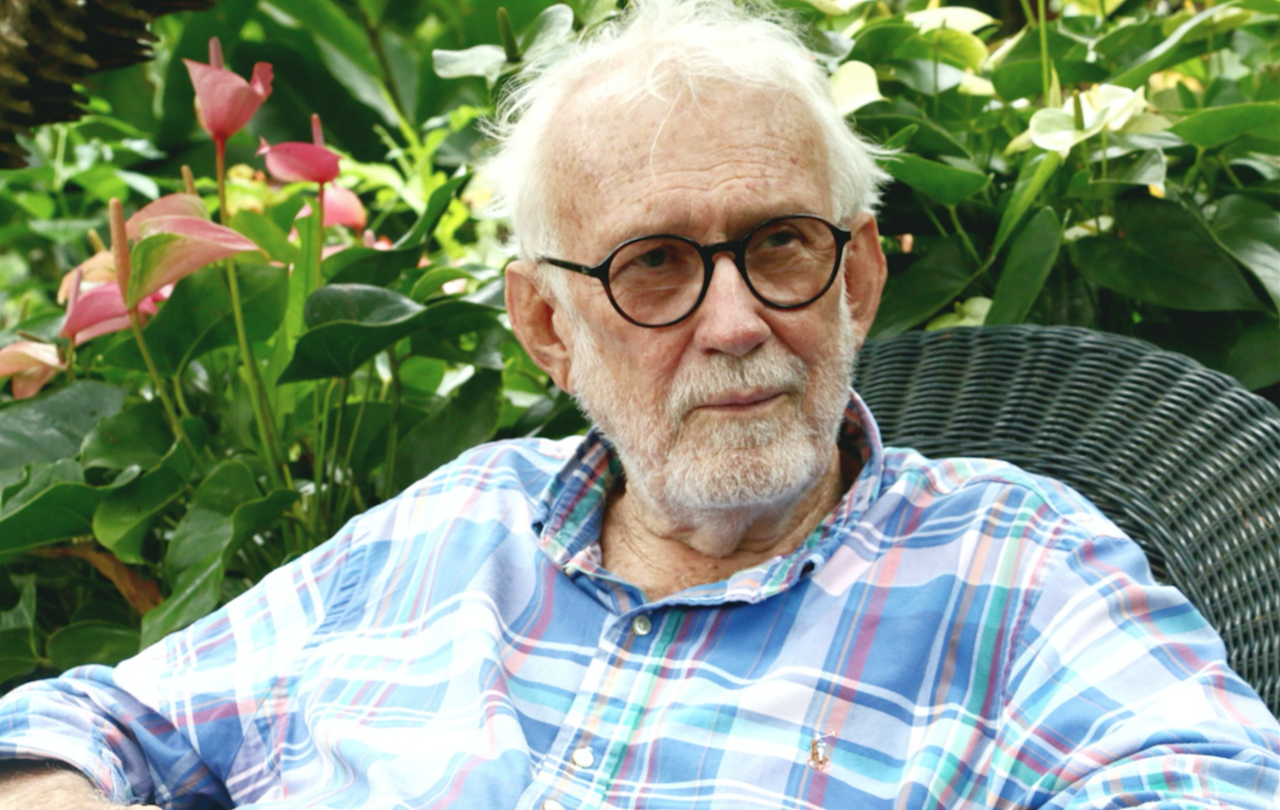The continued explosion in the green monkey population is creating a major headache for the operator of one of Barbados’ popular attractions.
Owner of Hunte’s Gardens Anthony Hunte told Barbados TODAY he believed the time had come for authorities to create a monkey attraction by capturing the primates and putting them into a specially designed habitat, away from the rest of the population.
He said that as a result of the increase in the population and their foraging habits, there had been a decline in the number of birds at his St Joseph site.
As a Barbados TODAY team sat down with Hunte on Thursday, he drew attention to noises being made by the birds as monkeys had made their way through the garden moments earlier.
“The monkeys are coming and are starting to eat the birds’ eggs. The birds that live in this area lay their eggs in the trees and the monkeys come in. So we are having a big reduction in my birds right in this area, and what is most serious is the hummingbird because we are seeing less and less of them,” he said.
“We used to have nests nearby where the visitors could come and look at them [and] look at the chicks, but not anymore. I don’t know where they are laying but they are obviously trying to find spots to hide them from the monkeys. But they are definitely reducing the population of the two species of hummingbirds in this garden,” he said.
Estimating that there could be about two dozen monkeys in a troop passing daily, Hunte said the situation had become dire, especially within the last two years, and the primates were “getting bolder”.
“They are coming really close and going after the eggs,” he lamented.
Hunte said while visitors often enjoyed seeing both the birds and the monkeys, he was concerned the birds were getting very agitated once the monkeys came around.
He said he feared that if decisive action was not taken to either control or isolate the monkey population, a bad situation could get worse.
“Really, we have too many in Barbados currently and they have gotten out of hand. We have thousands, and the more we feed them the more babies they are going to have,” he said.
“If there is any possibility where there are huge acres of land, like maybe down Hackleton’s Cliff, another attraction could be planned where the monkeys actually live in a specific area and have to live in that area. So, as we feed them in that area you grow trees so they live and don’t move out of that area because they are ruining crops all over Barbados,” he said. “We have to have the will to make the decision. Once you make the decision then you move with it, and procrastination I don’t think is good.”
In addition to stealing bird eggs, Hunte said the monkeys sometimes damaged plants in the garden, although he added that he tried his best to maintain “a good relationship” with them by allowing them to eat from the fruit trees.
However, he expressed concern for farmers whose crops were being harvested by the primates.
Charmaine Hatcher, general manager of the animal protection organisation RSPCA, said while she understood the reasoning behind Hunte’s suggestion, different troops of monkeys in a contained space would not work, since they are very territorial.
“I know what Mr Hunte is talking about because Hackleton’s Cliff area is very bushy and yes, you can plant trees, but trees take a long time to get to maturity to bear fruit . . . . With regards to just keeping monkeys in one particular area, I would say that can’t work because monkeys live in troops,” explained Hatcher.
The veterinarian further explained that the primates were venturing into new areas to seek food because their habitats have been taken away over the years, and people were feeding them and even keeping them as pets before releasing them when they got older.
She also noted that the manner in which people were disposing of their unwanted fruits and vegetables was attracting them to places they were not known to visit before.
The Barbados Wildlife Reserve is home to between 200 and 300 green monkeys. One representative at that St Peter location told Barbados TODAY that putting all the monkeys in Hackleton’s Cliff was not a good idea.
“We can’t do that because the whole island is covered in monkeys. We have about 20 000 to 25 000 monkeys on the island. We can’t get them in one area because the monkeys move in troops and different places have a different troop and the different troops don’t come together,” he explained.
While expressing sympathy for the farmers and residents being affected by the primates, he acknowledged that given their numbers “if you get rid of one troop another troop will come in that area”.
“And some of them break off on their own and create a new troop. We have been trapping monkeys over 30-plus years and the population, even though it went down, it gone back up so that will be difficult,” he said, adding that the lack of natural predators was responsible for the increase in the population of the green monkey that was introduced to Barbados more than 350 years ago. marlonmadden@barbadostoday.bb




